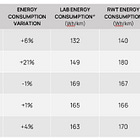Former Israeli Prime Minister Blasts Netanyahu Government, Says Majority Oppose Gaza Policy

Former Israeli Prime Minister Blasts Netanyahu Government, Says Majority Oppose Gaza Policy
Ehud Olmert criticizes reoccupation plans while defending Israel's responsibility for humanitarian crisis
JERUSALEM — Former Israeli Prime Minister Ehud Olmert delivered a scathing critique of Benjamin Netanyahu's government Thursday, declaring that the majority of Israelis oppose the current Gaza policy and warning that plans to reoccupy the territory would harm hostages and Palestinian civilians alike.
Speaking in a television interview, Olmert said Netanyahu's approach represents a "crisis" for Israel and predicted the government's policies would be rejected when elections are held.
"The majority of Israelis are not in favor of what the prime minister is doing," Olmert said during the ABC afternoon briefing. "The present idea of conquering all of Gaza is something which is not going to do any good, not to the Israeli hostages and not to the prospect of ending the war."
Olmert, who served as prime minister from 2007 to 2009 and has been a vocal critic of Netanyahu's handling of the conflict, said a full Gaza reoccupation would "definitely not" help prevent "killing unnecessarily non-involved Palestinians, which will become victims almost inevitably of this military operation."
Israel Bears Responsibility for Gaza Conditions
The former prime minister took direct responsibility for humanitarian conditions in Gaza, arguing that Israel's military control of the territory makes it accountable for civilian welfare.
"Israel is the power there. The Israeli army controls Gaza," Olmert said. "So it's incumbent upon the state of Israel to make sure that the humanitarian supplies are provided adequately, comprehensibly, without interference in an effective manner."
When pressed about potential starvation in Gaza, Olmert acknowledged uncertainty about current conditions but emphasized Israel's obligations as the controlling force.
"I definitely say I am not certain that I know and I don't think that anyone can say safely that he knows exactly who is responsible for what in terms of the actual events taking place," he said. "But the way I look at it is very simple... if it's not done, this is the responsibility of the Israeli government. There is no question about it."
Olmert noted that while Hamas may interfere with aid distribution "to get hold of a large part of the supplies for its own needs, not for the population," Israel's military presence creates an obligation to ensure effective humanitarian assistance.
Criticism of International Pressure Tactics
Despite supporting Palestinian statehood, Olmert criticized international efforts to pressure Israel through threatened recognition of a Palestinian state, calling such approaches counterproductive.
"I think it's a mistake to present it as a kind of a threat, as a punishment to Israel," Olmert said, referring to potential recognition by countries including Australia, Canada, France and the United Kingdom ahead of the UN General Assembly.
The former prime minister, who proposed a comprehensive two-state solution to Palestinian Authority President Mahmoud Abbas in 2008, said he found such diplomatic pressure "somewhat ridiculous."
"Really, what does the Australian prime minister say? He says, if Israel will not behave itself until the September Assembly of the United Nations, then we'll recognize a Palestinian state which doesn't exist," Olmert said.
Truth matters. Quality journalism costs.
Your subscription to The Evening Post (Australia) directly funds the investigative reporting our democracy needs. For less than a coffee per week, you enable our journalists to uncover stories that powerful interests would rather keep hidden. There is no corporate influence involved. No compromises. Just honest journalism when we need it most.
Not ready to be paid subscribe, but appreciate the newsletter ? Grab us a beer or snag the exclusive ad spot at the top of next week's newsletter.
Historical Peace Proposal Recalled
Olmert detailed his 2008 peace proposal, which offered Palestinians a state on 95% of occupied West Bank territory with land swaps to create a Palestinian state "100 percent identical in terms of the size of territory" to pre-1967 boundaries, including Arab portions of Jerusalem as Palestine's capital.
"I have proposed it 18 years ago to the Palestinians. They didn't have the courage and the wisdom to then agree to it, which may have changed history for millions," he said.
The proposal included establishing Palestinian statehood "on the basis of the borders of 1967 with the Arab side of Jerusalem as the capital of Palestine," representing one of the most comprehensive peace offers in recent decades.
Olmert said Abbas ultimately "backed away" from the proposal, missing what he characterized as a historic opportunity for peace.
Current Government's Opposition to Peace
The former prime minister said he actively opposes Netanyahu's government "precisely because of his opposition to any peaceful, comprehensive peaceful solution with the Palestinians."
"If Netanyahu will get what he wants and he will move forward with his plans, it will certainly reduce the chances for a comprehensive peace solution between us and the Palestinians," Olmert warned.
He emphasized that his political opposition stems from Netanyahu's resistance to peace negotiations rather than just current military strategy.
Palestinian Authority Reform Requirements
While criticizing Israeli policy, Olmert also demanded Palestinian Authority reforms, calling recent commitments by Abbas "positive" but requiring implementation.
"The Palestinian Authority needs to be reformed. They didn't have democratic elections for the last 20 years, something which is totally, of course, unacceptable," he said.
Olmert described the Palestinian Authority as "very weak, very ineffective, very divided" and said recent promises in a letter from Abbas to French President Emmanuel Macron represent progress if implemented.
"Some of the statements and the promises made by the letter Mahmoud Abbas sent to President Macron, which has become now widely accepted by the international community, is a step forward in the right direction," he said.
Media Coverage and Anti-Semitism Concerns
Addressing questions about Israeli media coverage of Gaza suffering, Olmert defended Israeli access to international reporting while expressing concern about anti-Semitic elements in some international protests.
"As far as I'm concerned, I don't need the Israeli television to compete with other media as to exactly what is shown or not. We watch everything," he said, noting Israelis view "all of the international television."
However, he noted concerns about demonstrations in various countries, including Australia, where protests "smelled with a certain degree of more than just criticism on the state of Israel or on the government of Israel. It is also smelled of something of anti-Semitism."
Alternative Diplomatic Approaches
Rather than threatening Palestinian state recognition, Olmert advocated for building international coalitions to influence both Israeli and Palestinian leadership.
"Keep on building up a coalition of other governments, including Australia, Canada, Great Britain, France, others, and maybe America, and try to influence the Israeli government and the Palestinian Authority," he said.
He emphasized that Palestinian leaders "also have to take certain measures of reforming themselves in order to be able to cope with the challenges of creating a peace process."
Regional Integration Opportunities
Olmert expressed optimism about potential Arab participation in peace efforts, citing the Abraham Accords and possible Saudi Arabian involvement.
"I'm definitely, definitely hopeful that the spirit of the Abraham Accords and the very forthcoming leadership manifested by the leaders of the Arab Emirates and the possible participation of Saudi Arabia in the normalization process is absolutely positive and encouraging," he said.
He praised regional leaders including Jordan's King Abdullah II and emphasized the importance of Egyptian and Jordanian support for creating "the necessary platform for what we want to achieve."
Future Political Prospects
Olmert predicted that Israeli public opinion would eventually be reflected in electoral outcomes, suggesting Netanyahu's policies lack sustainable support.
"It's not expressed yet in the policy of the government because the government still enjoys the majority of the last elections, but it will definitely be expressed when the next elections will take place, hopefully soon," he said.
The former prime minister indicated his preference for changing the Israeli government entirely rather than merely shifting policies.
"We have a lot of work to do inside Israel to change the policy of the government, or to change the government, which is much better, which we definitely want to do," he said.
International Context
The interview occurred amid growing international pressure on Israel over civilian casualties in Gaza and renewed diplomatic efforts to advance Palestinian statehood recognition.
Several countries, including Australia, have indicated they may recognize Palestinian statehood ahead of the September UN General Assembly if progress toward peace negotiations doesn't materialize.
Olmert's comments represent some of the strongest criticism from a former Israeli leader of current government policy, particularly his direct assignment of responsibility for humanitarian conditions to Israeli authorities.
His perspective carries particular weight given his role in previous peace negotiations and his detailed 2008 proposal that came closer to Palestinian statehood than most subsequent diplomatic efforts.
The former prime minister's criticism of both Israeli and Palestinian leadership suggests the complexity of achieving sustainable peace arrangements that satisfy both domestic political requirements and international diplomatic expectations.
Continued International Engagement
Olmert emphasized that successful peace negotiations require sustained international involvement alongside domestic political changes in both Israel and Palestinian territories.
"Certainly the framework of the international support of Arab countries and Muslim countries, such as the Emirates and the Saudis and, of course, Egypt and Jordan" remains "essential in order to create the necessary platform for what we want to achieve," he said.
His comments suggest that while critical of current approaches, former Israeli leadership remains committed to eventual two-state solutions supported by regional and international partnerships.
Got a News Tip?
Contact our editor via Proton Mail encrypted, X Direct Message, LinkedIn, or email. You can securely message him on Signal by using his username, Miko Santos.
As well as knowing you’re keeping Mencari (Australia) alive, you’ll also get:
Get breaking news AS IT HAPPENS - Gain instant access to our real-time coverage and analysis when major stories break, keeping you ahead of the curve
Unlock our COMPLETE content library - Enjoy unlimited access to every newsletter, podcast episode, and exclusive archive—all seamlessly available in your favorite podcast apps.
Join the conversation that matters - Be part of our vibrant community with full commenting privileges on all content, directly supporting The Evening Post (Australia)
Not ready to be paid subscribe, but appreciate the newsletter ? Grab us a beer or snag the exclusive ad spot at the top of next week's newsletter.








